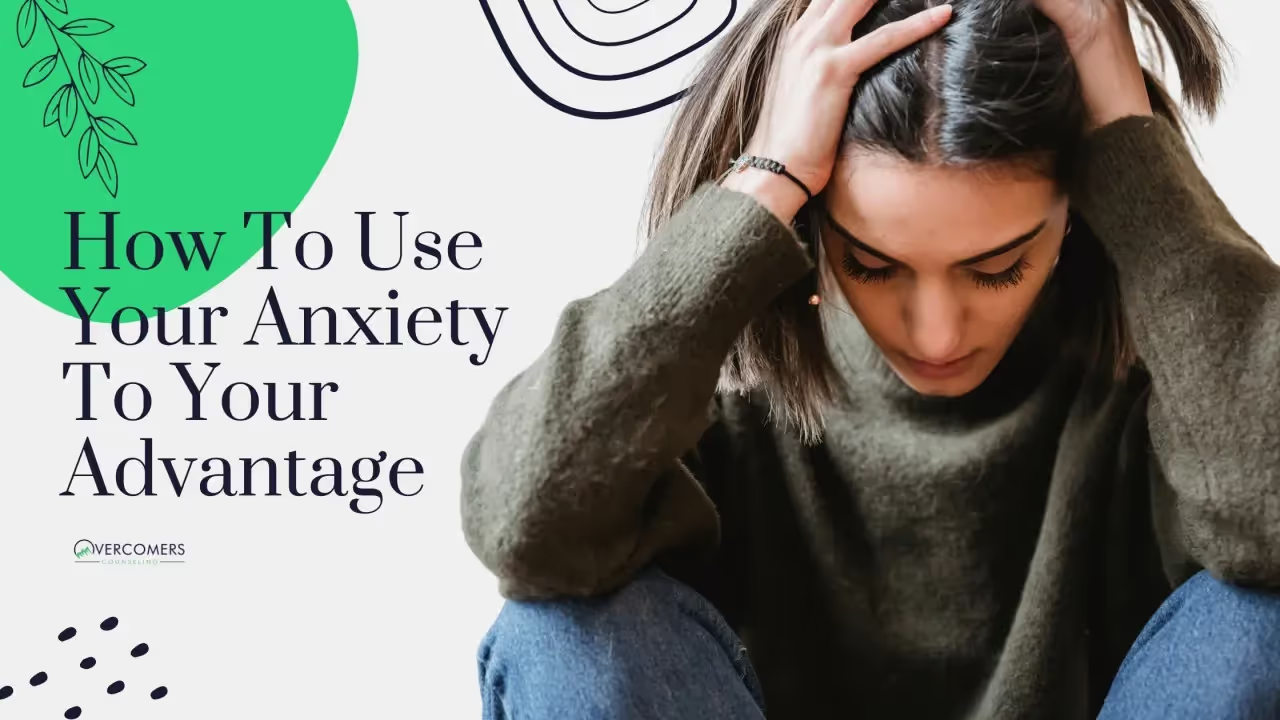Anxiety is a common emotion that we all experience from time to time. For some, anxiety can be debilitating and interfere with daily life. For others,...

Anxiety is a common emotion that we all experience from time to time.
For some, anxiety can be debilitating and interfere with daily life.
For others, anxiety can be a motivating force that helps them achieve great things.
The key is learning how to use your anxiety to your advantage.
This is important because, for many people, anxiety is a force that they cannot control or get rid of.
For many people, anxiety is a daily battle.
But did you know that anxiety can actually be beneficial?
That's right - anxiety can be your ally!
Here are some tips for how to learn how to use anxiety to your advantage:
Anxiety can be a difficult emotion to deal with, but it doesn't have to control your life.
With a little effort, you can learn how to use anxiety to your advantage and live a more successful and stress-free life.

There are a few signs that indicate that someone is healthily using their anxiety.
If you are experiencing any of these signs, you are likely healthily using your anxiety.
However, if your anxiety is starting to impact your daily life, it is important to seek professional help.

Feeling anxious is a normal human emotion that everyone feels at some point in their lives.
However, when anxiety starts to interfere with everyday activities, it can be difficult to manage.
There are several different ways to get over an anxious feeling, and the best method may vary from person to person.
Some people find that relaxation techniques, such as deep breathing or progressive muscle relaxation, help to reduce their anxiety levels.
Others find it helpful to take time out for self-care, such as taking a warm bath or reading a favorite book.
And for some people, talking to a therapist or counselor about their anxiety can be an effective way to manage their symptoms.
Ultimately, finding the right solution may require some trial and error.
But with a little effort, you should be able to find a way to get over your anxious feeling.
While it's natural to feel some anxiety in response to stress, for many people, anxiety can become overwhelming.
When left unchecked, anxiety can lead to insomnia, panic attacks, and other problems.
However, it is possible to use anxiety to your advantage.
For example, anxiety can be a powerful motivator. It can spur you to action and help you stay focused in the face of challenges.
Additionally, anxiety can improve your memory and vigilance.
When you're feeling anxious, your mind is more likely to latch onto important details and remember them later.
Finally, anxiety can help you empathize with others.
Anxious people are often more attuned to the emotions of those around them.
As a result, they may be better equipped to provide support and empathy.
If you have ever struggled with anxiety, you know how debilitating it can be.
You may feel like you are constantly on edge, unable to relax or concentrate.
You may also experience physical symptoms like racing heart, sweating, and difficulty breathing.
If you know someone who is struggling with anxiety, there are a few things you can do to help.
Anxiety can be a difficult thing to deal with, but it is possible to manage it using the right tools.
If you are struggling with anxiety, don't hesitate to seek professional help.
With the right support, you can learn to use your anxiety to your advantage.
While anxiety can be managed with self-care and relaxation techniques, for some people, these methods are not enough.
If your anxiety is impacting your daily life, it is important to seek professional help.
A therapist or counselor can help you understand your anxiety and develop strategies to manage it.
They can also provide guidance and support as you work through your feelings.
If you are struggling with anxiety, don't hesitate to seek professional help.
With the right support, you can learn to use your anxiety to your advantage.
Learning how to use your anxiety to your advantage can be a powerful tool in achieving success and happiness in life.
While it may take some time and effort to find the right method for you, it is well worth the effort.
With a little patience and perseverance, you can learn to manage your anxiety and use it to your advantage.
Other activities which have been found helpful in reducing both immediate feelings of anxiousness and long-term anxieties associated with chronic disorders include yoga, journaling, nature walks, art therapy, volunteering, and other low-stress activities. Additionally, developing a healthy lifestyle incorporating adequate sleep, physical activity, and nutritious meals can help reduce overall stress levels.
Ignoring anxiety can exacerbate symptoms and make it more challenging to manage over time. This can result in a negative impact on your personal, professional, and social life, leading to feelings of isolation and even depression.
Yes, Medicaid provides insurance coverage for therapy services specifically designed to help individuals struggling with anxiety, depression, and other mental health conditions.
It's important that you feel comfortable discussing personal matters with your therapist in order to open up and get more out of therapy sessions; therefore finding someone who meets certain criteria like experience level, expertise areas, and personality is key when selecting a therapist who can give meaningful feedback about how best handle issues related to anxiety or other mental health concerns.
Addressing anxiety is crucial because it can significantly impact your quality of life and overall well-being. Left untreated, anxiety can lead to more severe mental health issues, relationship problems, and difficulty functioning in daily life.
To reduce your anxiety, you can practice relaxation techniques such as deep breathing, progressive muscle relaxation, guided imagery, and mindfulness practices. Additionally, regular exercise has been found to be beneficial in managing stress and improving mental health.